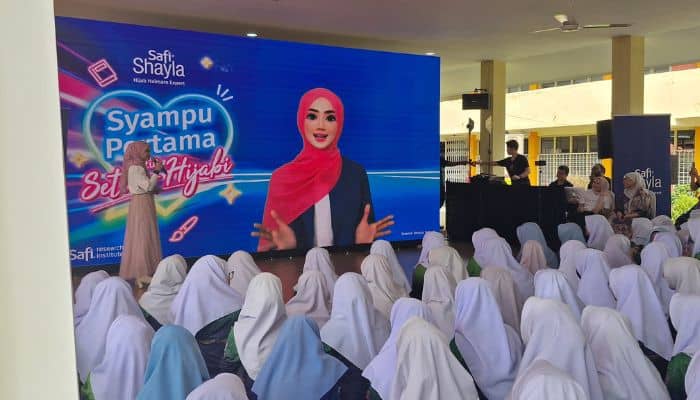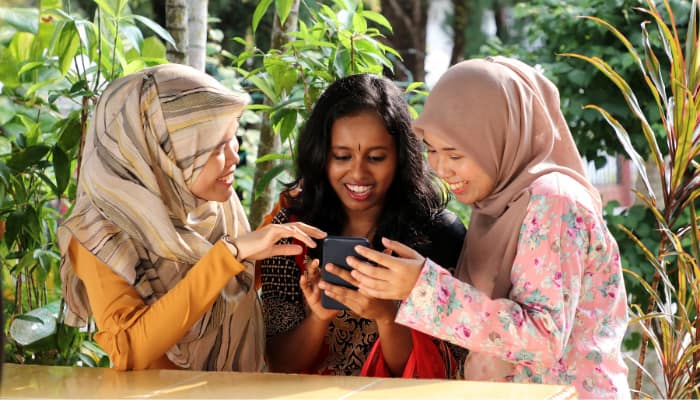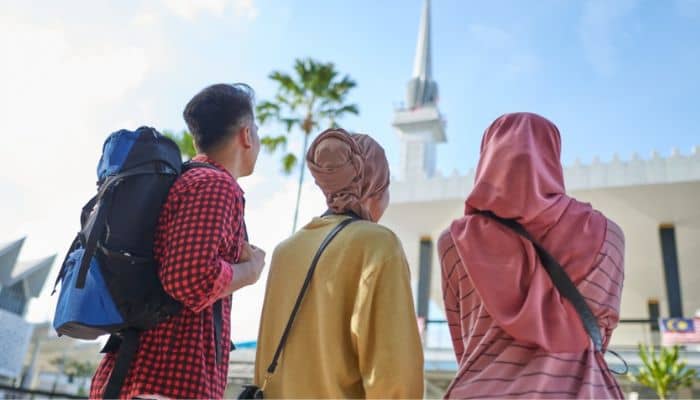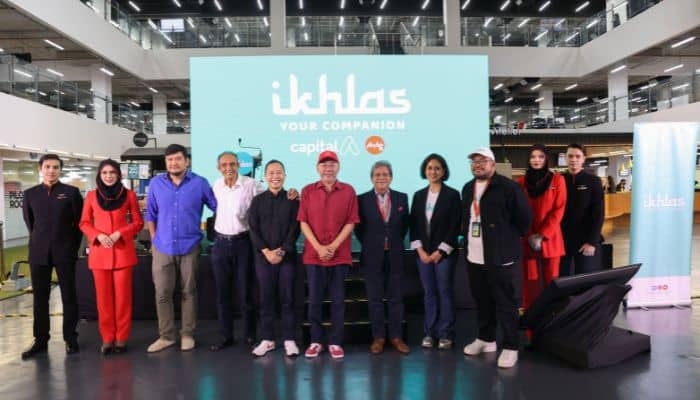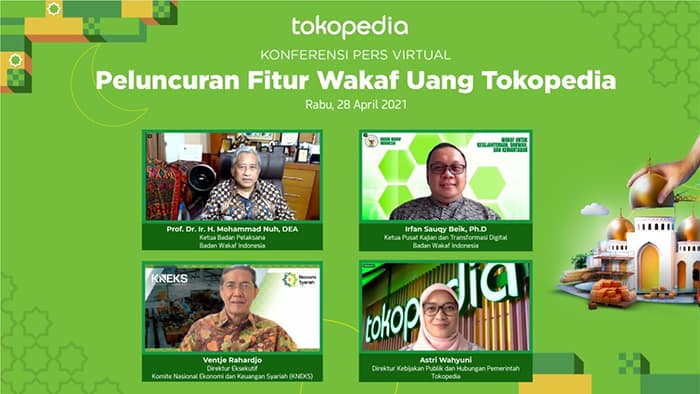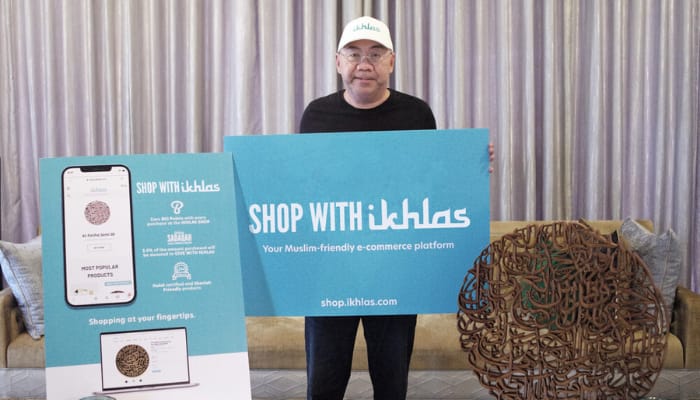As the joyous Raya season approaches, brands have a unique opportunity to connect meaningfully with their Muslim consumer base by aligning their messaging, products, and initiatives with Islamic values and cultural sensitivities. Beyond festive promotions, this period calls for authenticity, inclusivity, and a deep understanding of the traditions that shape consumer preferences.
Ahead of these festivities, Mastercard and Crescent Rating recently released a report highlighting consumer trust and brand engagement in the growing Muslim markets of Indonesia and Malaysia. With Indonesia being home to the world’s largest Muslim population and Malaysia positioned as a global leader in the Halal economy, both markets present valuable opportunities for businesses looking to align with the needs and expectations of Muslim consumers.
The study highlighted that around 90% of Indonesian and Malaysian consumers prioritise brands that follow faith-based values and principles, and around 40% of consumers turn to social media platforms like TikTok and Instagram to discover brands.
To better understand how brands should connect with their Muslim consumers genuinely, we recently sat down with Aisha Islam, senior vice president of Customer Solutions Center for Southeast Asia at Mastercard to create better experiences that meet the evolving needs of Muslim consumers.
Consumers want to be part of the narrative
For Aisha, one of the key observations amongst Muslim consumers nowadays is that they are increasingly seeking sustainable and mindful experiences that align with their beliefs and lifestyles in a holistic manner, not just Halal-compliant products. Moreover, digital-first consumers don’t just want to hear brand stories; they want to be part of the narrative.
“Brands should transition from storytelling to ‘storymaking’ to better create and curate experiences that resonate with consumers’ values, passions, interests, and most importantly, their identities, including their religious identities. This approach is key to forging genuine connections for their customers,” she explained.
This explains why many Muslim consumers gravitate to brand loyalty programs, with around 66% of Malaysian consumers engage in brand loyalty programs, with 70% finding them highly effective, presenting a clear opportunity for businesses to improve customer retention strategies. Despite only 24% of respondents in Indonesia engaging in brand loyalty programs, both consumers from these markets show a strong belief in the effectiveness of these programs, with more than 65% of respondents rating them positively.
Speaking about brand loyalty amongst Muslim consumers, Aisha also added, “Brands should consider how to engage with communities through social media, events, and partnerships with relevant influencers or organisations. Investing in value-added loyalty programs that go beyond just discounts is crucial. For example, offering loyalty redemption opportunities to support charitable causes that resonate with their desire for community support and ethical spending.”
A good example of where proper engagement with Muslim consumers comes into play is in travel, where Muslim travellers are increasingly using technology to personalize their travel experiences through apps that help them locate Halal food outlets, Qibla directions, and prayer timings.
At the same time, Aisha also stated that brands must consider other benefits such as exclusive access to events, personalised content, and community-driven initiatives to foster a sense of belonging and community. These can be amplified during Ramadan, Eid al-Fitr, and Eid al-Adha, helping brands creating meaningful and memorable loyalty with their Muslim customers.
To follow the needs of Muslim consumers, she advises brands to follow the ‘TRUST’ framework, which stands for Transparency, Respect, Understanding, Service, and Technology; as these are the foundational elements for establishing and maintaining long-term relationships with Muslim consumers.
Using data analytics to improve customer relationship
Aisha notes that as with any effective customer relationship strategy nowadays, digital engagement is an essential part of any customer relationship today. Utilising platforms such as social media campaigns, online communities, and mobile apps can foster a strong, interactive relationship with the audience.
In the Muslim context, however, Aisha specifies that it is important that brands ensure that their branding and advertising efforts are inclusive and reflective of Muslim identities while resonating with a wide audience.
“Brands do need to be sensitive to develop marketing campaigns with appropriate imagery, language, and messaging that respects and reflects Islamic values and culture,” she stated.
The report highlights that cultural and faith sensitivity plays a crucial role in consumer engagement, with nearly 90% of respondents highlighting the need for brands to honour their faith traditions. Companies that meet these expectations are more likely to earn consumer trust and foster long-term loyalty.
To better align with Muslim consumer needs, Aisha also encourages brands to leverage training to ensure that their staff is appropriately trained in cultural sensitivity and accessibility to accommodate Muslim consumers.
“Rather than relying on the perception of broad accessibility, proactively reach out to the Muslim demographic providing them with suitable options upfront. For instance, highlight facilities and services designed to respect and cater to faith practices, such as prayer spaces, Halal food options, and appropriate privacy measures,” she stated.
She also added that by leveraging data analytics, brands can deliver hyper-personalised experiences and product offerings that align with individual consumer preferences and speak to their values and expectations.
“When it comes to products, provide detailed information about their sourcing and certification to build trust with your consumers. Consumers across the board value authenticity and transparency, so aligning your brand’s messaging and actions with the values and expectations of the Muslim community is crucial to meeting their expectations. This approach helps establish strong, lasting relationships and ensure long-term success in this segment,” she further explained.
How to enforce brand credibility to consumers and community leaders
Online platforms are crucial for brand visibility and consumer engagement. In Indonesia, TikTok and Instagram dominate as key channels for customer interactions, whereas Malaysia demonstrates a more diverse approach, blending digital advertising, in-store promotions, and personal recommendations.
In the report, they indicate that short-form video content, influencer partnerships, and genuine brand narratives are particularly effective in capturing the attention of Muslim consumers.
To reinforce credibility to Muslim consumers through these channels, Aisha notes that brands must forge strategic alliances with community leaders and influencers is important to enhance credibility and amplify their message in a culturally respectful way. According to her, these partnerships can provide nuanced insights, ensuring your narrative or messaging resonates.
“The importance of developing social marketing campaigns with appropriate imagery, language, and messaging is just as critical as messages can be easily misconstrued or reach unintended audiences,” she said.
Aisha added, “Encourage dialogue by asking for feedback, responding to comments, and engaging in conversations between your spokespeople and the community. This demonstrates that you value the opinions of your audience.”
Moreover, she added that most ASEAN markets have their approach to the halal industry, reflecting distinct cultural, economic, and policy-driven strategies. For her, being mindful of these nuances ensures that their culture is represented respectfully.
Lastly, for brands targeting the mass market Muslim consumers, Aisha asks brands to consider an educational aspect in the content they are creating as this can help foster understanding and appreciation among a broader audience.
“Implement narrative-driven content strategies that showcase real stories and experiences from the Muslim community. This approach seeds deep emotional connections and reinforces brand authenticity. By focusing on community engagement, authentic storytelling, and strategic partnerships, brands can create meaningful and respectful media that can go a long way in fostering loyalty among Muslim consumers,” she concluded.

